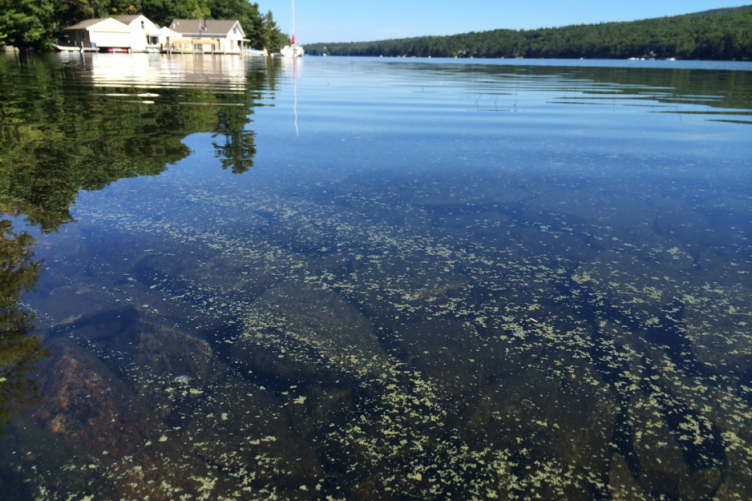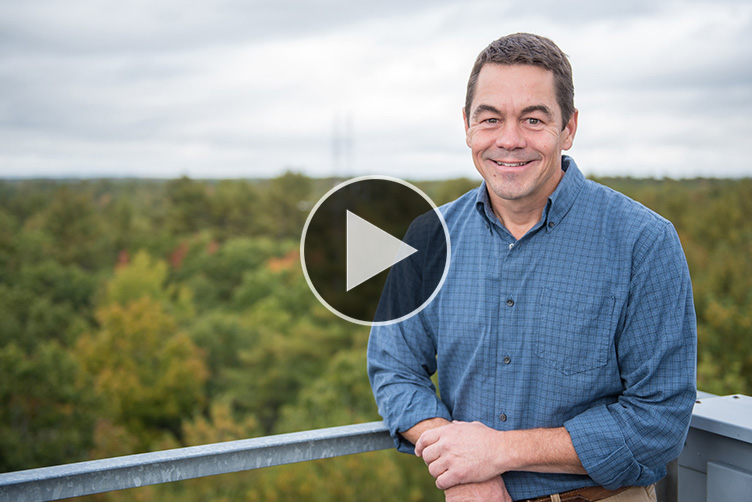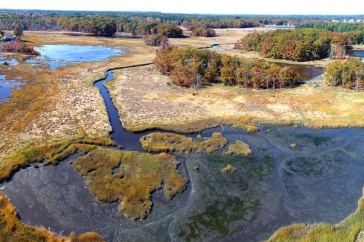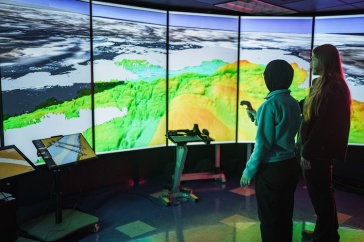
A cyanobacterial bloom on the surface of Lake Sunapee in New Hampshire. (Photo: Sam Fey)
Throughout the Northeast, lakes are popular recreation and second-home destinations — but that popularity can take a toll on the water quality that attracts visitors to begin with. With a new grant from NASA, an interdisciplinary team of researchers that includes UNH faculty members Mark Ducey (professor of natural resources and the environment), Kenneth Johnson (professor of sociology, Carsey School senior demographer) and Michael Palace (associate professor of Earth science) will examine how lake water quality in the Northeast’s temperate forests changed over the past three decades, what factors have influenced these changes and how such patterns might continue in a warmer, wetter and more crowded future.
With the three-year, $1.47 million grant, the researchers will explore how human population growth, altered land use and land cover, climate change and lake-specific factors have affected water quality in approximately 2,000 lakes in New York, Vermont, New Hampshire and Maine, especially in forested watersheds, many of which are located within “recreation counties.” New Hampshire’s Lake Sunapee is one of three focal lakes in the study. The team, which also includes researchers from Dartmouth and the Cary Institute of Ecosystem Studies, will use satellite data to help examine how weather conditions and lake water temperature play into the mix.
Using new remote sensing and crowd-sourcing citizen-based technologies, researchers will also develop a method to monitor blooms of cyanobacteria, or blue-green algae, in real-time, providing invaluable context for freshwater management.
“By leveraging the expertise of scientists from the natural and social sciences in collaboration with citizen scientists, this research will investigate the complex set of social, natural and environmental conditions that have and may continue to affect the water quality in our lakes in the Northeast,” says Ducey.
“This project illustrates the importance of building interdisciplinary research teams to address the complex environmental issues that the nation faces,” Johnson adds.
-
Written By:
Beth Potier | UNH Marketing | beth.potier@unh.edu | 2-1566

















































